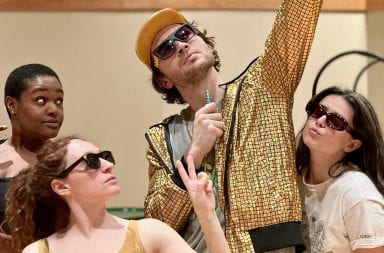When I first heard about the scandal surrounding the Ohio State Marching Band, or The Best Damn Band In The Land, I wasn’t surprised. I’ve known several band members during my time at OSU, and each of them has spoken with me independently about the crazy shenanigans that go on when no one is looking.
It’s been common knowledge for a while that the band had its own social group and weird traditions. I’ve been told the nicknames can get on your nerves, and that the band’s traditions can be pretty stressful for new members.
But at what point can traditions become dangerous? Where is the line that crosses from college fun to hazing?
I’ve experienced hazing. My roommate freshman year came back one night, surprisingly sober, but covered in vomit from head to toe. Apparently he and others were forced to drink until they vomited repeatedly, then crawl through the sick again and again. Soon after the fraternity in question was found out and wasn’t allowed to continue operating.
My roommate didn’t speak that night. He had a look in his eyes I wont forget — one of shame.
All of the band members I’ve spoken to have been proud. Although I’ve heard some of them complain about their nicknames and the like, none of them ever told me they regretted joining, and all of them explained there were lines that no one crossed. They always told me the band was like a family.
I won’t pretend to be an expert on hazing, and I’m not a member of the band, so I can’t say with certainty that it was all in good fun. However, I would like to remind everyone that when dealing with college students, sex, alcohol and nutty behavior is commonplace.
I don’t understand why former Marching Band director Jonathan Waters was fired. These things would have happened with or without his permission, and apparently he expressly told the band to stop some of the behavior.
How do you expect a college official to stop what was happening off of college grounds? OSU has a zero-tolerance approach to hazing, but what defines hazing, and at what point are you policing students’ lives?


